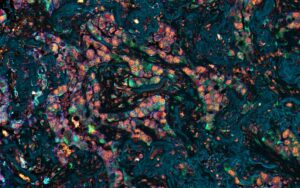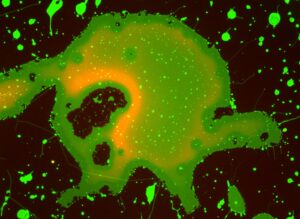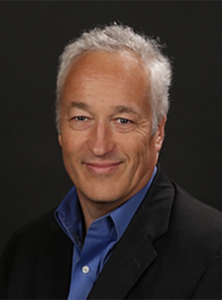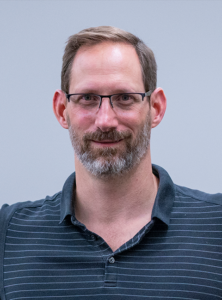Cancer Biology

Lung cancer immune cell infiltration, by Ana de Oliveira, PhD, Spatial Biology Core
There remains a critical need for effective new therapies to treat cancer. The most powerful approach for new therapeutic discovery begins with uncovering the basic mechanisms that drive cancer, identifying the critical components, and targeting them with small molecules that act as drugs for cancer therapy.
The Cancer Biology (CBIO) Program brings together University of Virginia Comprehensive Cancer Center (UVACCC) investigators to collectively make discoveries about cancer by identify therapeutic targets and developing agents to interfere with these targets. CBIO has two aims to accomplish its overall goals:
CBIO Program Aims
To accomplish its goals, the research of the CBIO program is organized around three specific aims:
- Aim 1: Develop systems-level understanding of oncogenic mechanisms
- Aim 2: Identify and validate cancer vulnerabilities
- Aim 3: Develop small molecules and imaging modalities to modulate and detect cancer targets
The CBIO program is led by:
-
John Bushweller, PhD
Dr. Bushweller is a leader in structure/function and inhibitor development focused on
transcription factors.
Learn more about CBIO program members and their research interests.

Immune scaffolding protein LAT (red) conjugated to DOPC lipid membrane (green), by Dr. Hongyin Wang from Dr. Ilya Levental’s lab in the Department of Molecular Physiology and Biological Physics


